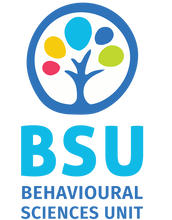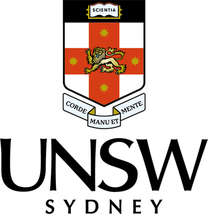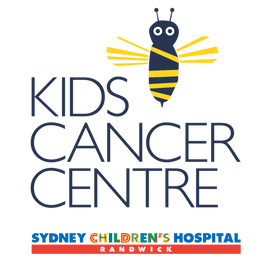OUR VISION
|
Our vision is to create, and be a part of, a fully integrated clinical and research space, fostering a ‘whole of life’ approach to childhood illness; recognising the child as a patient, a family member, a future adult and a member of society. Our goal is to enable each new generation of families affected by serious or chronic illness to have a better experience than the last. We aim to facilitate access to the best possible wholistic care for children and their families, creating their most healthy future. |
Our approach
1. Academic excellence and translational research
The primary aim of the BSU is to conduct world class and world first research using gold standard methods that can be translated into practice effectively and efficiently. Our work is highly impactful and widely cited, appearing in leading journals such as The Lancet Oncology and The Lancet Psychiatry. We have led the way in identifying unmet and unrecognised needs of children and families who face chronic and serious illness, working towards quick evidence-based development of resources to meet those needs. A key strength of the BSU is in implementation science, examining the process of ensuring uptake of such resources into clinical care.
Our team’s translational work on medical decision making is internationally recognised: we have developed >10 clinical decision aids, many of which are now endorsed and disseminated by NSW Health. We have created and implemented evidence-based resources for adolescents and young adults with cancer, parents of seriously ill children and bereaved families (recently recognised with two International Summit Creative Awards). The BSU was the first to document the needs of grandparents of children with cancer and develop grandparent resources which are now distributed to every family at diagnosis, Australia-wide. These resources are now being adapted for use in the US and Europe.
2. Leadership in clinical trials
The BSU leads multiple clinical trials to test our interventions, including randomised controlled trials and hybrid implementation trials. Aligning with international calls to listen to the patient voices, the BSU also assesses patient-reported outcomes (e.g. quality of life, pain) in clinical treatment trials across SCHN. We will continue to promote the inclusion of patient-reported data in future paediatric clinical trials in children. Given our track record in exploring the impact of the genetics revolution on children, we are also assessing the needs of families participating in precision medicine trials and will support multiple trials proposed in Paediatrio’s Centre for Paediatric Precision Medicine.
3. Community and international collaboration
From its inception, the BSU has been patient and family focused. We work closely with our parent and young person advisory committee, who advise on our research priorities as well as with community organisations such as Starlight Foundation, RedKite, Kids Cancer Project, Camp Quality, Ronald McDonald House Charities and Canteen Australia, amongst others. Our work has been published in most Australian newspapers (e.g. Sydney Morning Herald, Daily Telegraph), and radio (e.g. ABC 702, 2UE, Triple J) and television stations (e.g. Channel Seven National News).
The BSU is also an Executive Member of the SPHERE Clinical Academic Group, Kids 2 Adults (K2A), which focuses on children with chronic disease and their successful transition to healthy adulthood, as well as contributing to the SPHERE Early Life Determinants of Health group.
Internationally, the BSU collaborates with leading institutions across the US, Canada and Europe. We recognise the importance of capacity building in behavioural sciences, especially in developing nations, where psychosocial care for families can be severely under-resourced. Prof Wakefield founded the first international early career group for professionals working in behavioural sciences in cancer and currently mentors clinician-researchers in children’s hospitals in Kenya and Uganda and has been involved in the psychosocial program development at a children’s cancer centre in Iran. In recognition of her international work, Prof Wakefield is a member of the World Health Organisation's Global Childhood Cancer Initiative.
The primary aim of the BSU is to conduct world class and world first research using gold standard methods that can be translated into practice effectively and efficiently. Our work is highly impactful and widely cited, appearing in leading journals such as The Lancet Oncology and The Lancet Psychiatry. We have led the way in identifying unmet and unrecognised needs of children and families who face chronic and serious illness, working towards quick evidence-based development of resources to meet those needs. A key strength of the BSU is in implementation science, examining the process of ensuring uptake of such resources into clinical care.
Our team’s translational work on medical decision making is internationally recognised: we have developed >10 clinical decision aids, many of which are now endorsed and disseminated by NSW Health. We have created and implemented evidence-based resources for adolescents and young adults with cancer, parents of seriously ill children and bereaved families (recently recognised with two International Summit Creative Awards). The BSU was the first to document the needs of grandparents of children with cancer and develop grandparent resources which are now distributed to every family at diagnosis, Australia-wide. These resources are now being adapted for use in the US and Europe.
2. Leadership in clinical trials
The BSU leads multiple clinical trials to test our interventions, including randomised controlled trials and hybrid implementation trials. Aligning with international calls to listen to the patient voices, the BSU also assesses patient-reported outcomes (e.g. quality of life, pain) in clinical treatment trials across SCHN. We will continue to promote the inclusion of patient-reported data in future paediatric clinical trials in children. Given our track record in exploring the impact of the genetics revolution on children, we are also assessing the needs of families participating in precision medicine trials and will support multiple trials proposed in Paediatrio’s Centre for Paediatric Precision Medicine.
3. Community and international collaboration
From its inception, the BSU has been patient and family focused. We work closely with our parent and young person advisory committee, who advise on our research priorities as well as with community organisations such as Starlight Foundation, RedKite, Kids Cancer Project, Camp Quality, Ronald McDonald House Charities and Canteen Australia, amongst others. Our work has been published in most Australian newspapers (e.g. Sydney Morning Herald, Daily Telegraph), and radio (e.g. ABC 702, 2UE, Triple J) and television stations (e.g. Channel Seven National News).
The BSU is also an Executive Member of the SPHERE Clinical Academic Group, Kids 2 Adults (K2A), which focuses on children with chronic disease and their successful transition to healthy adulthood, as well as contributing to the SPHERE Early Life Determinants of Health group.
Internationally, the BSU collaborates with leading institutions across the US, Canada and Europe. We recognise the importance of capacity building in behavioural sciences, especially in developing nations, where psychosocial care for families can be severely under-resourced. Prof Wakefield founded the first international early career group for professionals working in behavioural sciences in cancer and currently mentors clinician-researchers in children’s hospitals in Kenya and Uganda and has been involved in the psychosocial program development at a children’s cancer centre in Iran. In recognition of her international work, Prof Wakefield is a member of the World Health Organisation's Global Childhood Cancer Initiative.


